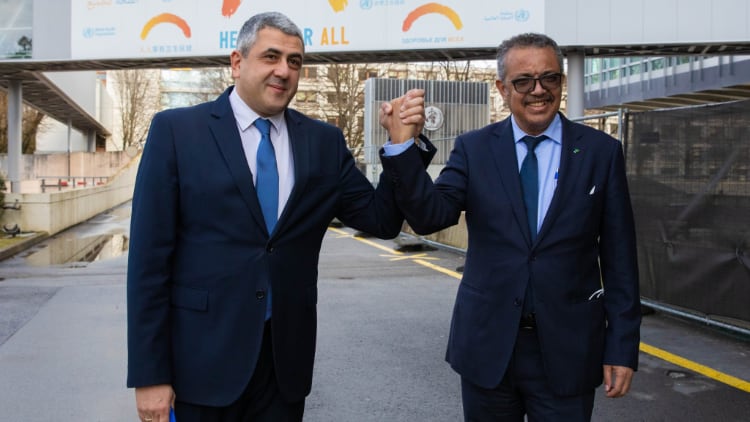Eduardo González
Foreign Minister José Manuel Albares and the rest of his EU counterparts were surprised yesterday in Brussels by the sudden decision of Russian President Vladimir Putin to recognize the independence of the Ukrainian provinces of Donetsk and Lugansk, thus crossing one of the red lines imposed by the European Union, NATO and the US as a condition for not imposing economic sanctions on Moscow.
The EU Foreign Affairs Council, held yesterday in Brussels, was forced to interrupt its agenda when the first news of Moscow’s impending decision came in. “We all agreed to urge Russia not to take this decision, which we regret and reject as contrary to the Minsk agreements” and which “has no other result than to increase political tension on that border in a completely unnecessary way,” Albares said at the post-Council press conference, shortly before Putin’s signing of the decree,
After the news broke, the President of the European Council, Charles Michel; the President of the European Commission, Ursula von der Leyen; and the EU High Representative for Foreign Policy, Josep Borrell, condemned this “flagrant violation of international law”, this “violation of Ukraine’s territorial integrity” and this “violation of the Minsk agreements” and announced that “the EU and its allies will react with unity, firmness and determination solidarity with Ukraine”. Just before the signing of the decree in Moscow, the EU had warned Putin of the imposition of tough trade sanctions in case of recognizing Donetsk and Lugansk. For his part, NATO Secretary General Jens Stoltenberg stated that recognition of Donetsk and Lugansk “erodes efforts” to resolve the conflict.
During the Brussels meeting, Ukrainian Foreign Minister Dmytro Kuleba held a breakfast meeting with his EU colleagues at which he warned that there were already “good and legitimate reasons to impose at least some of the sanctions on Russia.” In response to these words, Albares stated at the press conference that “the philosophy of the sanctions” is “to avoid is a military aggression by Russia against Ukraine, not to give any excuse for that to happen”, but the last minute decision on the two provinces has changed the discourse. In fact, the Spanish minister himself assured at the press conference that, if Donetsk and Lugansk were to be recognized, the EU would respond “immediately and jointly”, without giving further details.
Albares also reiterated that the EU supports France’s proposal to host a meeting between Presidents Vladimir Putin of Russia and Joe Biden of the United States, “because any diplomatic action, any means of dialogue, is good and the EU will support it”. “But we have to recognize that Russia is not making it easy for us,” he added.
On the other hand, Albares explained that Kuleba asked the EU states to maintain their diplomatic representations in Kiev. “We have told him that we are going to keep it, including the EU delegation,” he declared. “It has been a unanimous decision of the EU and we have agreed to coordinate for any changes,” he continued. “The Embassy of Spain, and this is a message that I want to convey above all to the Spanish colony in Ukraine, remains fully operational and at its entire disposal, and this is also a sign of commitment and solidarity with Ukraine, with its sovereignty, with its territorial integrity,” he added.
For his part, the President of the Government, Pedro Sánchez, yesterday addressed the situation in Ukraine during his meeting with the Prime Minister of Denmark, Mette Frederiksen, in Madrid. “We have stated our concern for the security situation in Europe, our support for the sovereignty and territorial integrity of Ukraine, and the total unity of the European partners and the Atlantic Alliance against any destabilizing attempt,” said Sanchez at the joint press conference.” “It is still the time for diplomacy, which must never be exhausted, but we are ready to respond united if it is finally decided to invade and open a warlike conflict with Ukraine,” he specified. “We must send a firm and resounding message to President Putin and the Russian government, so that they understand that the escalation of the situation in Ukraine could greatly damage them economically and isolate Putin from the rest of the international community,” he warned.







